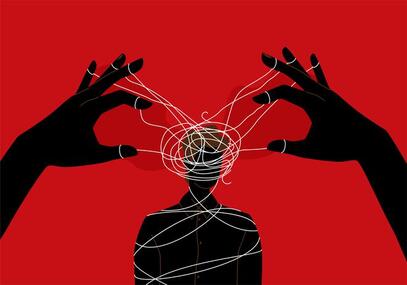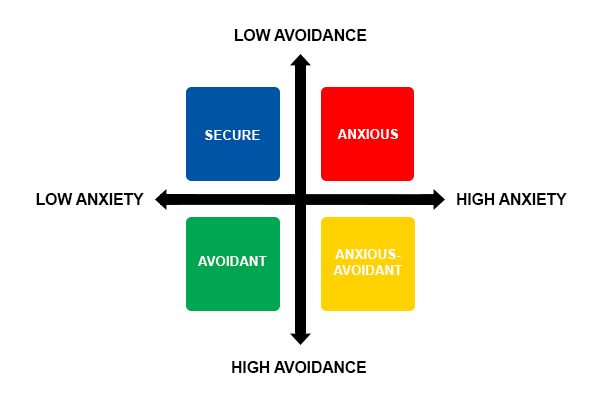|
Gaslighting is a form of psychological manipulation in which one person makes another person doubt their perceptions, experiences, memories, or understanding of events that happened. It is a subtle and insidious form of abuse that can have a devastating impact on the victim's mental and emotional health.
Gaslighting can occur in any type of relationship, but it is particularly common in romantic relationships. This is because romantic partners often have a high level of trust and intimacy, which makes them more vulnerable to manipulation. Gaslighters typically use a variety of tactics to achieve their goals, including:
If you are in a relationship with someone who is gaslighting you, it is important to seek help from a qualified psychotherapist. A therapist can help you to understand what is happening to you, and they can provide you with support and guidance as you work to recover from the effects of gaslighting. Here are some tips for coping with gaslighting in a relationship:
It is also important to remember that you are not alone. If gaslighting is a problem in your relationship, therapy can help. Contact Scott at (303) 817-8369 or email at [email protected] for a free phone or video evaluation. I often work with clients who are struggling to set boundaries with a narcissist. Narcissists are people with a personality disorder that is characterized by a grandiose sense of self-importance, a need for admiration, and a lack of empathy for others.
Narcissists can be very difficult to deal with, as they often try to control and manipulate the people around them. They may also be very critical and demanding. It is important to remember that you cannot change a narcissist's behavior. However, you can set boundaries to protect yourself from their abuse. Here are some tips for setting boundaries with a narcissist:
Here are some additional tips for setting boundaries with a narcissist:
It is important to remember that you cannot change a narcissist. However, you can set boundaries to protect yourself from their abuse. By setting and enforcing boundaries, you are taking steps to protect your well-being. If you are struggling to set boundaries with a narcissist, please know that you are not alone. There are people who care about you and want to help. Please reach out to a friend, family member, therapist, or other support person for help. I can help. Call Scott at (303) 817) 8369 or email at [email protected] for a free phone or video evaluation. How the Relationship Style We Learned from Our Parents Influences Us as Adults in a Relationship9/3/2023
As children, we learn about relationships by watching our parents interact with each other. We see how they communicate, how they resolve conflict, and how they show love and affection. These observations become our template for how we expect relationships to work. If our parents had a healthy, loving relationship, we are more likely to have secure attachment styles as adults. This means that we feel confident in our ability to form close relationships and that we expect to be loved and supported by our partners. However, if our parents had an unhealthy or conflictual relationship, we are more likely to have insecure attachment styles. This means that we may have difficulty trusting others, may be afraid of abandonment, or may have a hard time expressing our emotions in relationships. Of course, our relationship style is not determined solely by our parents. Our own experiences and personality also play a role. However, our parents' relationship style can have a significant impact on how we approach our own relationships as adults. Generational Influence The generational influence on relationship styles is a complex topic. There are many factors that can contribute to how we learn about relationships from our parents, including their own attachment styles, their cultural background, and the historical context in which they grew up. For example, people who grew up in families where there was a lot of conflict may be more likely to have insecure attachment styles. This is because they may have learned that relationships are inherently unstable and that conflict is inevitable. On the other hand, people who grew up in families where there was a lot of love and support may be more likely to have secure attachment styles. This is because they may have learned that relationships are a source of comfort and security. It is also important to note that the generational influence on relationship styles can be passed down from generation to generation. This is because children learn about relationships from their parents, who learned about relationships from their parents, and so on. As a result, it is not uncommon for people to find themselves repeating the same relationship patterns that their parents did. This can be a challenge to break, but it is possible with awareness and effort. Here are some specific ways that the relationship style we learned from our parents can influence us in our adult relationships:
Remember, you are not doomed to repeat the relationship patterns you learned from your parents. With awareness and effort, you can create healthy, fulfilling relationships in your own life. Here are some additional tips for breaking the cycle of unhealthy relationship patterns:
If you need help with your relationship, contact Scott Olds at (303) 817-8369 or [email protected].
If you are a highly sensitive person (HSP) in an abusive relationship, you may feel overwhelmed, exhausted, and even hopeless. You may be wondering if you are crazy or if you are just too sensitive.
The truth is, you are not crazy. You are simply a highly sensitive person who has gotten into a relationship with an abuser. Abuse can take many forms, including physical, emotional, verbal, and financial abuse. As an HSP, you are naturally empathic and caring. You are drawn to people who are in need, and you want to help them. This makes you a prime target for an abuser. Abusers are often very good at manipulating and controlling others, and they can easily take advantage of your sensitivity. If you are in an abusive relationship, you may be experiencing some of the following:
If you are ready to get out of your abusive relationship, there are a few things you can do:
If you are a highly sensitive person in an abusive relationship, please know that you are not alone. There is help available. Please reach out to Scott Olds, Psychotherapist, for support. Here are some additional resources that you may find helpful:
|
AuthorScott F. Olds, Psychotherapist Categories
All
Archives
February 2024
Call Scott at
|
Package Discount: Get a 4-session package for 10% off! Call for details.
I offer sessions in the office, in an open space (weather permitting), by phone, and by video sessions for your safety and convenience. Take a deep breath and give me a call at (303) 817-8369 or email me at [email protected].
Confidential: I am HIPAA compliant, so your privacy is protected.
Crisis Information: If you are in crisis, call Colorado Crisis and Support at 844-493-8255 or the national Suicide and Crisis Lifeline at 988 for 24/7 for help in an emergency. These lifelines provide free and confidential support for people in distress, prevention, and crisis resources for you or your loved ones.
(303) 817-8369
[email protected]
10960 W. 65th Way
Arvada, Colorado 80004
My office is in Arvada, Colorado.
Privacy Policy







